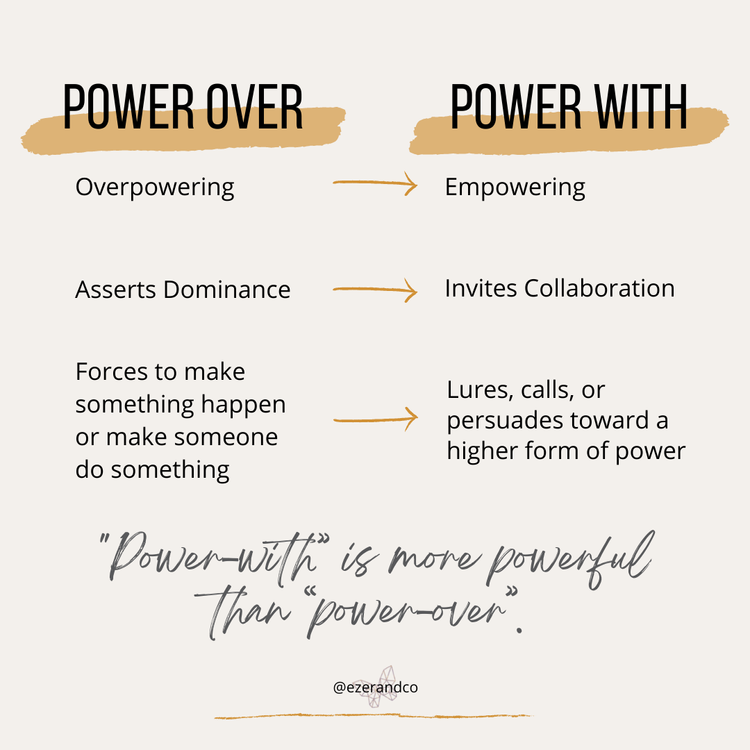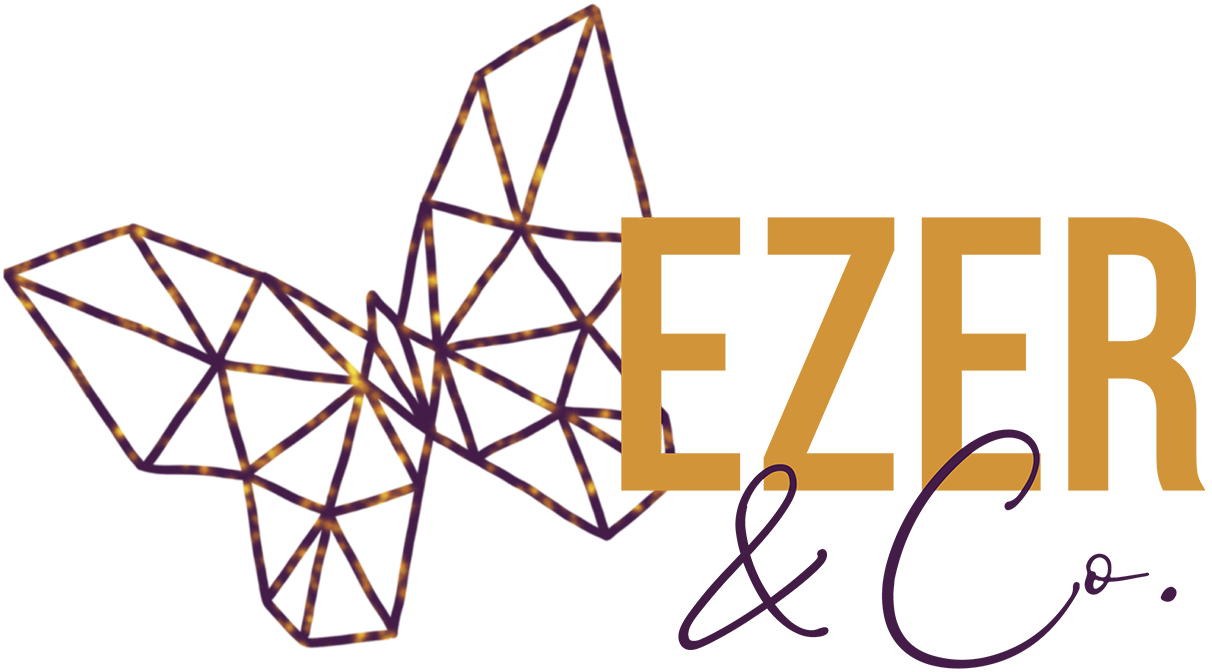The Highest Form of Power
This is the final part of a 4-part series on “You’re a Woman, Making History” with Shaleen Kendrick.
In this final part of the 4-part series, we’ll explore:
- the highest form of power
- what is “power-over” versus “power-with”
- what feminist spirituality upholds
Here’s a clip with practical next steps to increase wholeness from this powerful interview with Shaleen…

*Exclusive access in our Warrior Women membership community. Join for FREE for 30-days.
POWER DYNAMICS MATTER BECAUSE HUMANS ARE SHAPED BY THEIR ENVIRONMENTS.
The question is not about power itself, but what is the highest form of power?!
I (Shaleen) am a Process Theologian and we are always asking, “what is the highest form of power?”
The highest form of power is
a persuasive power,
NOT an authoritarian power.

WHAT IS POWER-OVER?
Staci Haines’ themes in her work The Politics of Trauma help put language to the invisible power dynamics that cause trauma.
She helps identify that a significant amount of our trauma comes from dominant culture structured in a matrix of power-over systems.
The dominant culture in society refers to the established language, religion, behavior, values, rituals, and social customs. These traits are often the norm for society as a whole, even though they don’t represent the whole.
She says, “we are shaped by power-over conditions, and we come to embody them, both unconsciously (mostly) and consciously (some). Power-over economic, political, and social systems concentrate safety, belonging, dignity, decision making, and resources within a few elite, and particular nation-states.” (1)
Haines argues,
“embodied healing means we can make choices based on what we care about, rather than react from survival strategies, even under the pressures of living, loving, and social justice work.”
As a practical theologian, personal “ah-ha!” moments arose for me as Haines’ made connections for me and empowered me with language to speak to my experiences and desire to heal from patriarchal abuses of power.

and Dignity.
These are inherent needs in human beings. We are tracking for safety, adapting to belong, and organizing ourselves to find dignity. We are at our best when we have, and can offer, all three…
Oppressive social and economic conditions cause traumas that need healing.
Social change requires masses of people building together toward collective safety, belonging, and dignity, and systems that support this. Healing can serve that goal. Systemic transformation can serve healing.
Staci Haines, The Politics of Trauma
Participating in patriarchy is a maladaptive way to get our needs met.
It’s reflective of Kory Schuknecht’s position that it’s about “Meeting legitimate needs in illegitimate ways.”
We have the opportunity to become more whole when all three of these basic, God-created human needs are met. We need a better embodied option (i.e., power-with systems) to meet our needs for safety, belonging, and dignity before we will let go of toxic “power-over” systems.
We get to re-imagine and re-structure relationships from an ancient tower with arrows pointing downwards conveying dominance – to a circle.

WHAT IS POWER-WITH?
Without ever claiming to Christianity or Christ, bell hooks and Staci Haines profoundly understand and embody Jesus’ insistence that systems of oppression and dominance (power-over) are antithetical to salvation which is directly connected to the Kingdom of God on earth.
Remember hooks knows something about this,
![]()
Love can never take root in a relationship based on domination and coercion. The heartbeat of our alternative vision is still a fundamental and necessary truth: there can be no love when there is domination.
— bell hooks
Feminist thinking and practice emphasize the value of mutual growth and self-actualization in partnerships and in parenting.
This vision of relationships where everyone’s needs are respected, where everyone has rights, where no one need fear subordination or abuse, runs counter to everything patriarchy upholds about the structure of relationships.
“POWER-WITh” is
- Always asking the question of collaboration
- Circular in nature
- Not void of authority in places of work or parenting; it means relationships are not authoritarian. Big difference!
FEMINIST SPIRITUALITY UPHOLDS
- There can be no love when there is domination aka power over.
- A spirituality that embodies the values of equity and justice that requires mutual growth and self-actualization in all areas of life—friendships, lovers, partners, employers, parenting, etc.
- This vision of relationships where everyone’s needs are valued, and we get to be the ones to determine our needs.
- That everyone has rights and we get to determine what rights those are.
- That no one fears being “put in their place” or held back.
- Not fearing the backlash every time you push up against it.
- No fear of subordination or abuse, which runs counter to everything patriarchy upholds about the structure of relationships. (2)
- Most of us have experienced or will experience male domination in our intimate private lives in relation to male parental caregivers, fathers, brothers, or in romantic partnership for heterosexual females.
- Most us have somatically known (aka our body knows) and felt this abuse of power and yet haven’t had the words for it. (3)
As we wrap this 4-part series, this is Good News for all the world. For those in our community who identify as Jesus followers, this is the way. This is the way we bring more of heaven on earth! So be it.
Read the whole series here:
- What is Feminism? (part 1)
- Slaying Old Dragons (part 2)
- Naming Your Invisible Labor (part 3)
SOURCES:
1 Haines, Staci. The Politics of Trauma, (p. 55)
2 hooks, bell. Feminism Is for Everybody, (p. 103). Taylor and Francis. Kindle Edition.
3 hooks, bell. Feminism Is for Everybody, (p. 103). Taylor and Francis. Kindle Edition.
